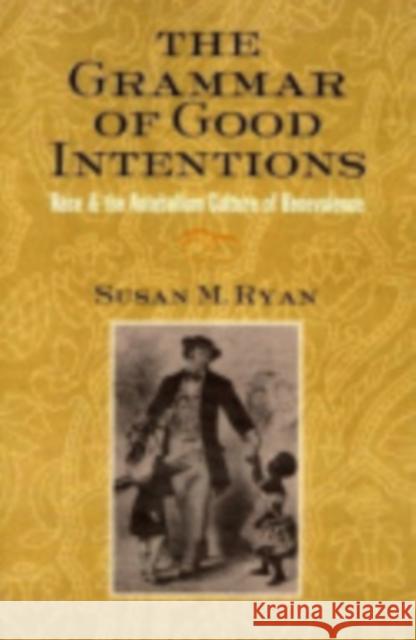The Grammar of Good Intentions: Race & the Antebellum Culture of Benevolence » książka
The Grammar of Good Intentions: Race & the Antebellum Culture of Benevolence
ISBN-13: 9780801439551 / Angielski / Twarda / 2003 / 256 str.
The Grammar of Good Intentions: Race & the Antebellum Culture of Benevolence
ISBN-13: 9780801439551 / Angielski / Twarda / 2003 / 256 str.
(netto: 241,07 VAT: 5%)
Najniższa cena z 30 dni: 233,01
ok. 30 dni roboczych
Bez gwarancji dostawy przed świętami
Darmowa dostawa!
Susan M. Ryan explores antebellum Americans' preoccupation with the language and practice of benevolence. Drawing upon a variety of cultural and literary texts, she traces how people working and writing within social reform movements - and their outspoken opponents - helped solidify racial and class ideologies that ultimately marginalized even the most deserving poor. The links between race and the relations of benevolence occasioned much soul-searching among antebellum Americans, Ryan explains. In a period of heated public debate over issues such as slavery, Indian removal, and non-Protestant immigration, the categories of blackness, Indianness, and a generic 'foreignness' came to signify, for many whites, need itself. Confidence-Man, Frederick Douglass's My Bondage and My Freedom, and Harriet Beecher Stowe's Uncle Tom's Cabin back into dialogue with a broad range of print materials: the reports of charity societies, African American and Native American newspapers, juvenile fiction, travel writing, cartoons, sermons and tract literature. In the process, she dispels the myth that authors usually classified as literary were responding to a simple and unquestioned cult of benevolence. Rather, she contends, they were participating in the complex and often rancorous debates occurring within the broader culture over how good intentions should be expressed and enacted.











